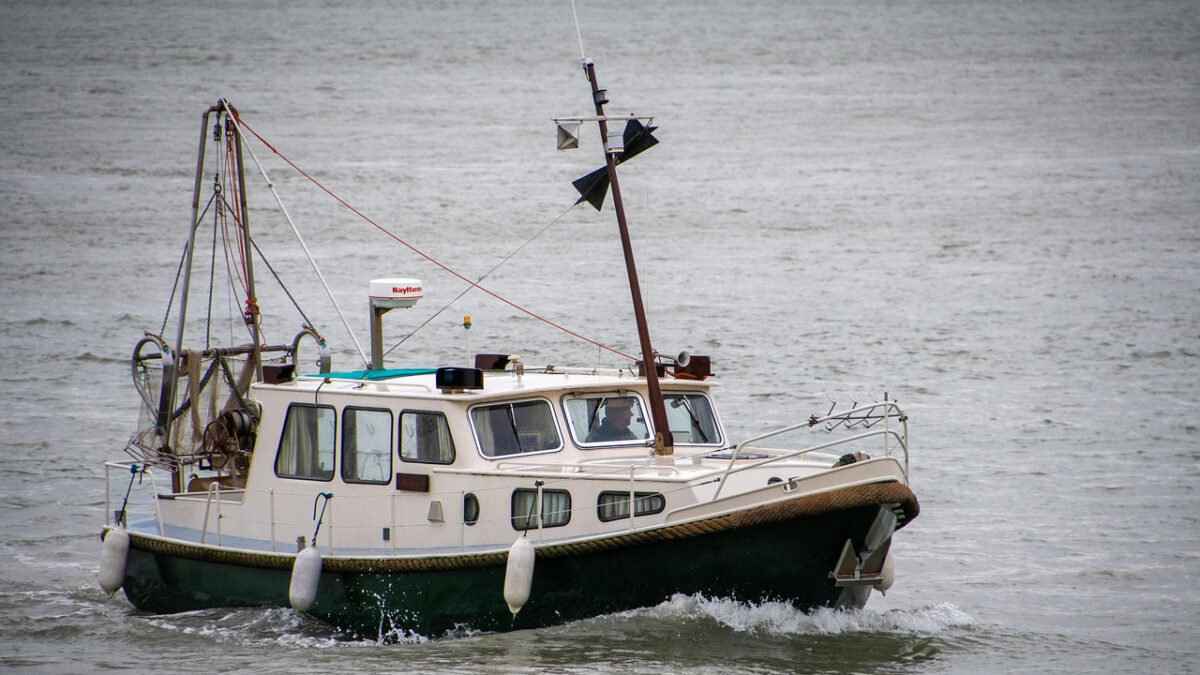Though I was never a professional fisherman, I have spent thousands of hours at sea.
It began with a year on the USS Virginia, where I completed my qualifications as Officer of the Day Underway. Although I never formally received my S.W.O.S. badge after passing the written and oral exams, the skipper honored me with the privilege of conning the ship into New York Harbor all the way to Sandy Hook Pier.
My brother-in-law spent thirty years as a skipper in the Bering Sea, fishing for King, Snow, and Dungeness crab. Later, he became a partner in Alaska Leader Fisheries—a syndicate that now owns five longline processors considered the queens of the Alaska fleet. In 2008, I had the thrill of serving as first mate on one of those ships—The Bering Leader—during a passage from Magnolia (Seattle) to Kodiak. By chance, just this past summer, while taking guests up to Anacortes, I was reunited with The Bering Leader as she sat in dry dock at the Anacortes shipyard.
Now, I am in the process of buying either a Nordic Tug or a Ranger Tug, hopeful to outfit her for crab fishing on Skagit Bay. Earlier this week, Lynn and I joined a crab fisherman out of Dugula Bay. We set five 80-lb traps in under two hours and caught our limit—the largest Dungeness crabs I have ever seen. For the past three nights, crab has been the centerpiece of our dinner.
As we hauled up pots brimming with 10 to 20 crabs, tossing most back, I was reminded of the wisdom and sayings handed down to me by sailors and fishermen. Here are a few favorites:
On Work & Grit
- “The sea doesn’t care about your plans—only your preparation.”
- “You don’t wrestle crabs for a living if you’re afraid to bleed a little.”
- “Every haul’s a gamble, but the boat doesn’t move if you don’t bet.”
On Risk & Resilience
- “If you’re not a little scared, you’re not paying attention.”
- “The ocean teaches you fast: respect her, or she’ll remind you why you should.”
- “You can’t control the storm, but you can tie your knots tight.”
Fishermen, like farmers and ranchers, spend their lives working closely with Mother Nature and come to understand both the work and the risk of their professions. Those who truly love what they do regard their work as a vocation. Efficiency and productivity breed satisfaction and pride in their toil. It’s a sense shared by people in action-oriented jobs—military personnel, law enforcement officers, nurses, civil engineers, and surgeons—whose hands and daily efforts bring them face to face with nature’s forces and unpredictability.
Those close to nature seem to forge that connection with greater ease. In the end, nature will have a substantial influence over how many patients one saves or how many fish one catches.
There are many ways that work ethic shapes one’s view of risk. In surgery, the old saying goes, “There are old surgeons and bold surgeons, but no old bold surgeons.” The implication is that experience tempers risk; wisdom recognizes hazards before they become fatal.
Yet, I always felt this wasn’t exactly right. As my practice matured and my consulting base grew, I could select the least risky cases, shifting riskier surgeries to “younger and bolder” colleagues. In the back of my mind, that always seemed wrong. The riskiest cases were handled by those with the least experience. If you were an elderly patient with heart disease and diabetes, wouldn’t you want an experienced surgeon? In my final years of practice, I did my best to change that paradigm.
The same dynamic plays out in politics. The longer one serves, the more tempting it is to avoid hard choices and leave tough problems for someone else. It’s the “young guns” who often have the courage to tackle the hardest issues. Or at least those individuals with a “young sprit”. The experience needed to address today’s complicated challenges is rarely found solely within government; it’s built through work, grit, and a willingness to face real risk. Politicians tend to shun risk as much as lawyers do—and perhaps that’s why inertia grips our governance, with so many lawyers in office.
What’s needed are more mothers and fathers who have managed a household budget. We are fortunate to have farmers and ranchers in our legislatures—people accustomed to facing real-world opportunities, risks, and failures. We need representatives armed with the wisdom and the spirit of the fishermen and sailors I have been privileged to know.



2 replies on “Grit, Risk, Spirit”
Hi Mr. Livingston, my landlord has been a commercial fisherman the last 34 years and holds a 450 captains license. His boat is birthed in Portland Maine. According to my landlord NOAA is in charge of the fishing and the past 4 years they have pretty much shut down fishing, at least on the east coast and he is pissed, and it’s not because of the lack of fish. The reason nobody seems to know. The boat can’t afford to be idle just sitting waiting for NOAA to give them permission to fish. He used to make good money fishing a very tough job and now he’s looking to do something else to make ends meet. Tough prepossession when fishing is all you’ve ever done.
You need to get a guitar as well.
https://www.youtube.com/watch?v=eyZSWk-7zW0